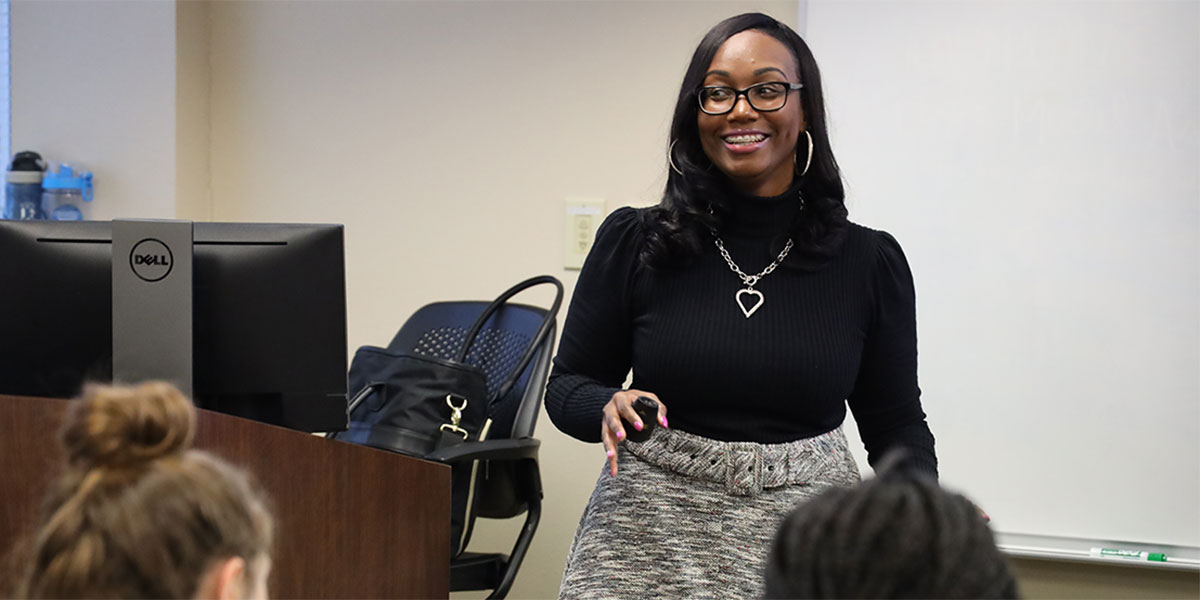Meet Baylor’s expert on the impact of Black fatherhood

Within the social work profession, the topic of fatherhood is often understudied and misunderstood, particularly within Black families. Cue Dr. Brianna P. Lemmons, an assistant professor in Baylor’s Diana R. Garland School of Social Work, who’s working to address such shortcomings.
Lemmons came to Baylor in 2018 after teaching at California State University, Los Angeles and at Howard University, where she set the course for her career: to change the ongoing narrative surrounding Black fatherhood and create avenues for Black fathers to tell their own stories.
“My interest in this area of research stems from my relationship with my own father,” Lemmons explains. “As a child, I had a very positive relationship with him, but I witnessed the challenges he faced co-parenting my non-resident siblings [children he fathered prior to his marriage to Lemmons’ mother]. So often, non-resident fathers are defined by their residential status, and assumed to be uncaring and uninvolved. But I knew there was another side to this story that was yet to be told.”
Now, Lemmons’ work continues at Baylor. Her most recent studies focus on father-daughter relationships. Findings from Lemmons’ latest research indicate Black female adolescents are less likely to engage in risky behaviors (i.e., fighting, unprotected sex, etc.) when they feel a sense of closeness to their fathers. Another study (currently being edited) found father closeness is also a significant predictor of pregnancy outcomes among an older sample of adult Black women.
“As a whole, this research has the ability to shift paradigms as it relates to non-resident Black fathers and the roles they play in cultivating the well-being of their families,” says Lemmons.
Moving forward, Lemmons plans to assess mental health among fathers of various different racial/ethnic groups. In the meantime, she is in the process of establishing the Black Female Fatherhood Scholars Network, an organization comprised of academicians, researchers and practitioners committed to uplifting the Black community through the study of Black fatherhood and Black families.
“Our goal is to engage in the kind of scholarship that helps to move the needle on Black fatherhood, both nationally and internationally,” she says. “If we can strengthen Black fathers, we can in turn strengthen Black families.”
Sic ’em, Dr. Lemmons!

